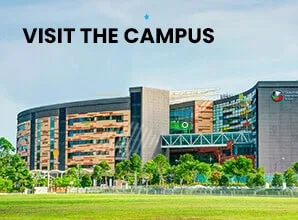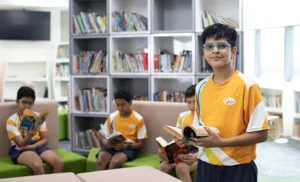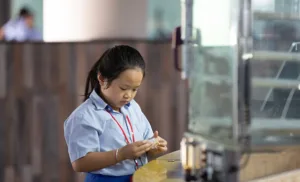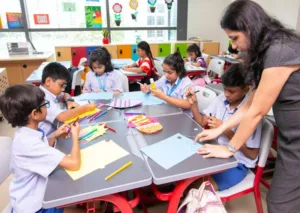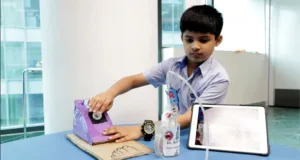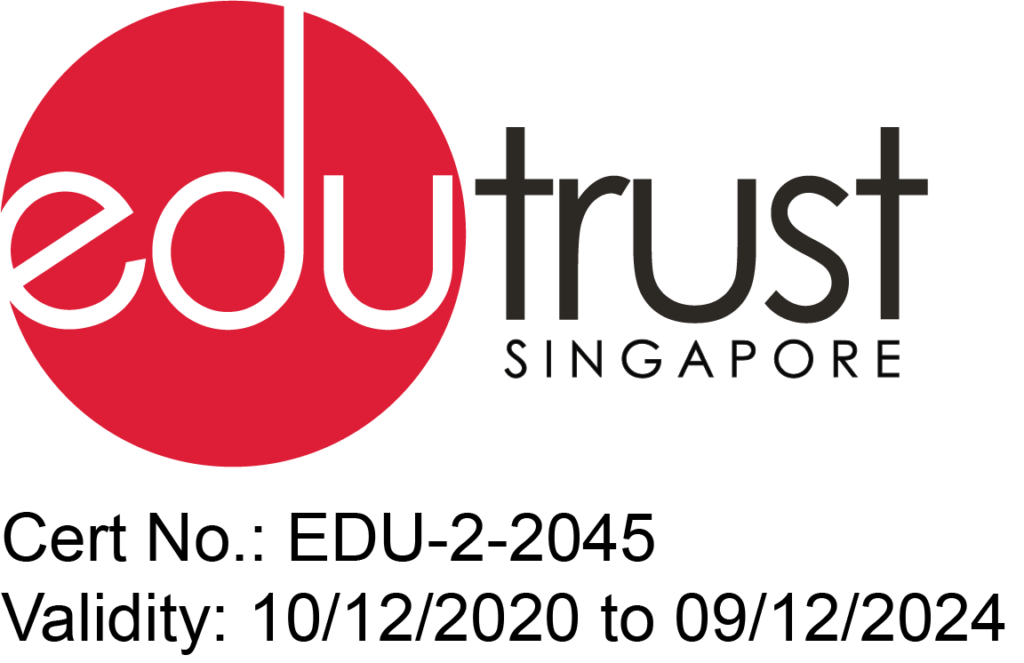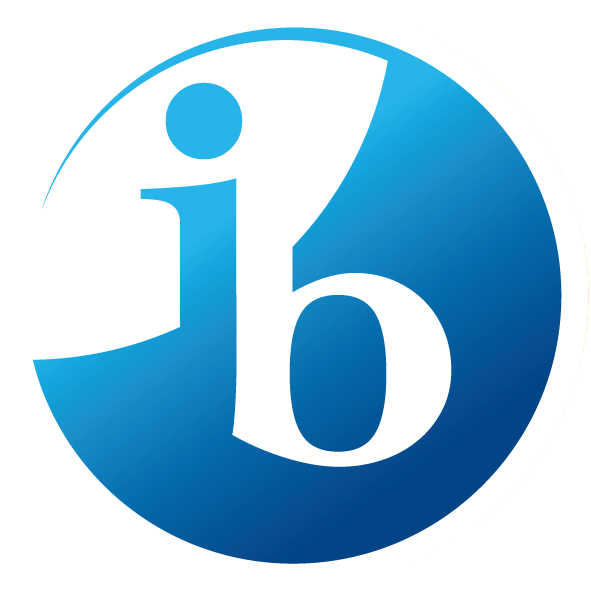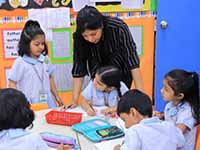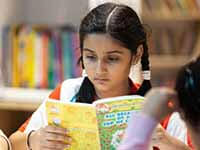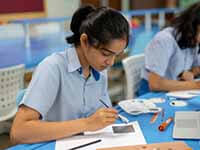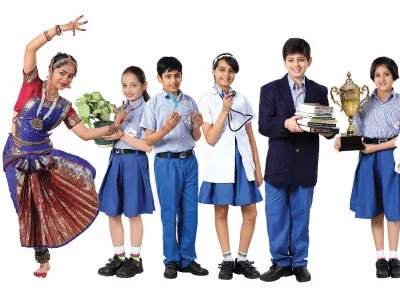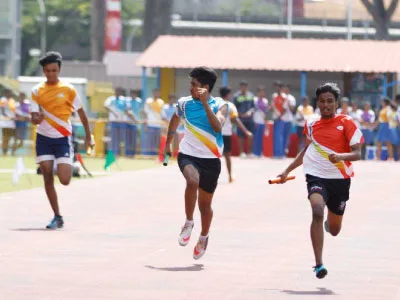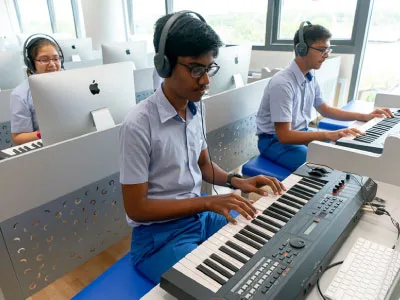(This blog is based on the author’s conversation with Ms. Manju Nair, IB PYP coordinator at GIIS SMART campus.)
Transdisciplinary learning is an educational approach in which children are taught various skills and concepts across multiple subjects, helping to build authentic learning experiences. It’s an integral part of the IB Primary Years Programme (IB PYP), and better prepares students to navigate real-world challenges and develop creative thinking skills.
In the IB PYP, there are six themes of transdisciplinary learning:
● Who We Are
● Where We Are in Place and Time
● How We Express Ourselves
● How the World Works
● How We Organise Ourselves
● Sharing the Planet
The transdisciplinary approach used throughout the IB PYP promotes conceptual understanding across disciplines, cultures, nationalities and geographical boundaries.

Learning between, across and beyond subjects
IB PYP students know that their educational journey merely begins when they are in school, and that they are called to be lifelong learners. Through transdisciplinary learning, they are taught to apply the skills they have learned and positively impact the world around them.
The learning is not confined by the boundaries of traditional subjects. Transdisciplinary learning helps between, across and beyond subjects by:
● Allowing students to explore relationships between academic disciplines. Students quickly see that mathematics and science are more than just courses they learn in school. They see that the various subjects they study are almost always tied together in unique and exciting ways through transdisciplinary learning. For example, when they see a pattern in a mathematical model, they may relate it to the patterns in music or to patterns in the natural world of plants and animals.
● Helping students make real-world connections. Primary school students need to know that learning is more than just memorising facts. The PYP focuses on conceptual learning through inquiry where students are in control of their own learning. The teachers are facilitators and enablers, providing students with information in the context of the real world. They help students become aware of their own interests, capabilities and help them realise different possibilities.
● Giving students an opportunity to reflect on their learning experiences and subsequently take meaningful actions. At the end of a Unit of Inquiry, students are encouraged to reflect on the entire learning experience to better understand the steps they took to get to where they are today. By doing so, they are better prepared to make conscious decisions that will have a positive impact on the world around them.
● Encouraging students to process information by connecting it to their own experiences. This allows students to better relate to their learning and understand how their lessons can impact them personally.
Preparing GIIS IB PYP students for the real world
At GIIS, we believe that our primary school students deserve an educational experience that will prepare them for the future. The IB PYP lessons are engaging, relevant and interesting to students of all ages.

In addition, by providing transdisciplinary learning opportunities and incorporating current events into the curriculum, students can see that their knowledge and skills can be applied across and beyond subject areas.
Examples of transdisciplinary learning
Throughout the PYP, students have many transdisciplinary learning opportunities and experiences. These are just a couple of examples of transdisciplinary learning at GIIS.
● Grade 2 students enjoy a social studies lesson about how people around the world value money in different ways. This lesson fits into the transdisciplinary theme of “How We Organise Ourselves”. Throughout the lesson, students learn about economic activities and choices and how they impact human-made systems and the world around us. At the same time, students learn more about languages, currency and mathematics.
● In another PYP classroom, students enjoy a lesson on inventions and the design cycle. Rather than simply reading about inventors and memorising their contributions, students collaborate with one another to brainstorm ideas for inventions, test their theories, perform trial runs and explore the patent process. In the end, they work together to build working prototypes that are displayed at a school exhibition, giving them recognition for their hard work. Throughout this hands-on lesson, primary school students learn about history, science, mathematics and public speaking while developing collaboration and communication skills.
The programme is complemented by GIIS’ collaborative learning environment and state-of-the-art campus. Some features that aid in transdisciplinary learning include:
● Instruction from IB-certified teachers under an experienced programme co-ordinator, all of whom focus on providing a nurturing and collaborative classroom environment.
● Innovative classroom designs that promote communication and collaboration among primary school students.
● Digital classrooms that create technology-led engaging learning experiences.
● Small cohort sizes that allow for more personal instruction and guidance.
While students are participating in the IB PYP inside the classrooms at GIIS, they are being uniquely prepared for life beyond the school’s campus. Our students begin an educational journey that will extend throughout their lifetimes and lead them towards a promising future.
For more information about transdisciplinary learning experiences for our PYP students, get in touch with our admissions counsellors or to see our students in action, book a campus tour today.

